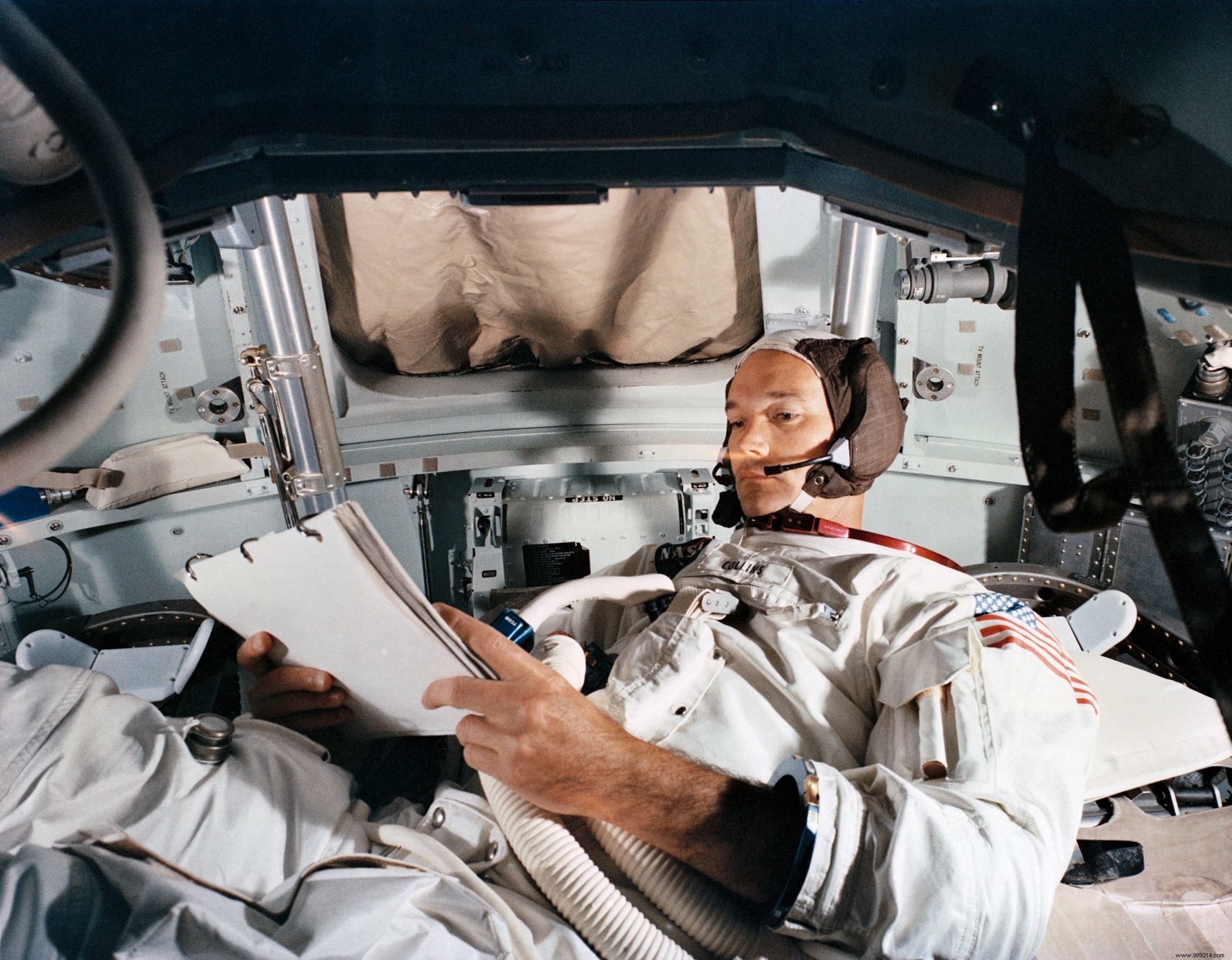Astronaut Michael Collins died this Wednesday, April 28, 2021. The man was particularly famous during the Apollo 11 mission as a pilot of the Columbia spacecraft . While his two colleagues made history on the surface, Collins found himself alone for more than 45 minutes as he passed "on the other side of the Moon". How did he live this experience?
Of the three men who made history in July 1969, only one remains:Buzz Aldrin. While Neil Armstrong passed away in 2012, Michael Collins joined him yesterday after a valiant battle with illness. "Mike has always faced life's challenges with grace and humility, and faced this challenge, his final challenge, just the same “, said his relatives in a statement. “We will miss him terribly. Yet we also know how lucky Mike was to have lived the life he lived “.
“Today the nation has lost a true pioneer and long-time champion of exploration “, said Steve Jurczyk, acting administrator of NASA. "As the pilot of the Apollo 11 Command Module, as two of his colleagues walked on the Moon for the first time, he helped our nation achieve a breakthrough “.
During the 1969 Apollo 11 mission, as Armstrong and Aldrin descended to the lunar surface, Collins, orbiting about 100 km above their heads, thus remained alone in his ship, staying out of communication range for more than 45 minutes as he passed to the far side of the Moon. For this reason, some later called him "the loneliest man in history".
“I am alone now, truly alone and absolutely isolated from all known life “, he would write later in his 1974 memoir (Carrying the Fire), thinking back to this event.
Collins was alone, indeed, but this moment, he lived it serenely. "Behind the Moon, it was very peaceful - no one at Mission Control was bothering me to do this or that “he said two years ago at an Explorer’s Club event in New York. “So I was very happy, it was a peaceful place “.

Collins, however, revealed that his experience orbiting the Moon was not all peace and quiet. While reviewing the possible rendezvous maneuvers with the lunar module, the astronaut was indeed worried about his friends – a group of little white mice.
When they returned from their mission, the Apollo 11 astronauts spent several weeks in quarantine alongside several rodents that had just been exposed to lunar samples. Scientists watched them for any signs of distress.
The idea was that if the mice got sick or started exhibiting strange behaviors, the team monitoring the crew members would know that they might have brought back with them "moon seeds". Eventually, and fortunately, all the mice did well.
This is how Michael Collins lived his experience around the Moon, far from all life on Earth:he enjoyed a well-deserved break with the mission controllers, and thought to a colony of mice.

Of course, Collins did not only shine during the Apollo 11 mission. Born in Rome in October 1930, he turned to a career in the army of the air to serve as a fighter pilot. From 1959 to 1963, he also served as a test pilot at Edwards Air Force Base in California, logging over 4,200 flight hours.
Collins was then selected as a NASA astronaut in October 1963. His first flight was as a pilot of the Gemini 10 mission, in July 1966. After serving as CAPCOM (capsule communicator) for Apollo 8, relaying information between mission control and the crew, he then continued with Apollo 11. In total, the astronaut will have flown more than 266 hours in space.
Collins retired from the Air Force as a major general and left NASA in 1970. He then became Assistant Secretary of State for public affairs. In 1971, he joined the Smithsonian Institution as director of the National Air and Space Museum, before being named vice president of LTV Aerospace and Defense Co. in 1980.
Five years later, he left office to become an independent consultant and lecturer on space, before taking a well-deserved retirement.